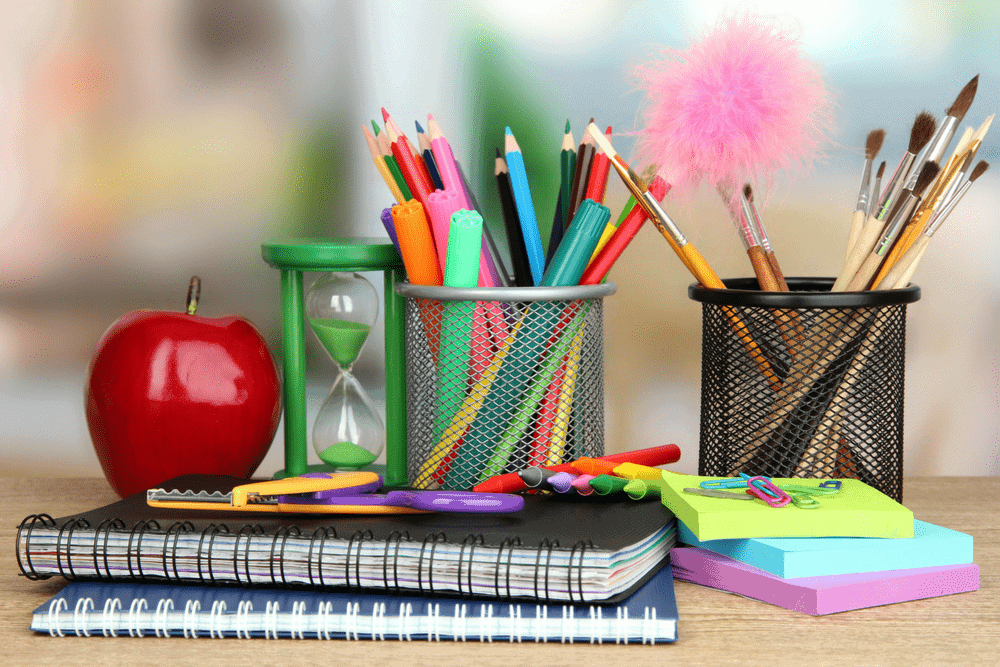When the kids go back to school, life should get easier, right? Nope. It gets way more complicated. You need to get the kids to school and back (if they don’t ride the bus). You need to get them to soccer, swim or ballet practice. They need lunches and after-school snacks. They have homework. And then there are school functions. A few organizational tips might go a long way toward making the school year run smoothly. We surveyed some moms and dads to find out what they do to stay organized and they came through for us.

Some of these tips save you money. Some save you gas (a k a money). Some save you time (ditto). And some will save your sanity — which as we all know is priceless.
Buy a calendar with big squares for every day of the month
You can find them at office supply stores. Or tear a page out of a weekly engagement calendar and post it on the fridge. Or try a whiteboard, which is nice because it’s erasable. As soon as you know something must be done on a certain day, write it down. Now. (Yes, your various electronic devices can help you stay organized, but you need something posted where everyone in the family can see it.)
Buy each child an alarm clock
Find something fun or cute: One little girl’s clock has a Minnie Mouse giggle; a teen might like a programmable alarm with a current favorite song. That way, the kids start taking responsibility for their own morning routine. You hope. (And using an old-school alarm clock lets you remove teens’ cellphones from their rooms at night if you decide this is a good strategy for your family.)
Arrange a carpool
Taking the time to do it before school starts will save you endless hours of driving later. Try to find at least one other dependable parent — two if your vehicles can handle the number of kids. Have a schedule, but be flexible if your job allows it. Make sure everyone has everyone else’s phone numbers and keep them in a place where everyone in the family can find them. Also make sure the school has a copy. (Note: You may have to arrange a second carpool for after-school activities/sports practices.) Finally, if your kids are old enough, check out the city bus system. Many of them have specially priced passes for students.
Plan and pack lunches
It’s cheaper and usually more nutritious for you to pack your child’s lunch, or maybe they just want to take one on certain days. Either way, pack the lunch the night before and refrigerate it. That way, there’s no argument at 7 a.m. about whether your child wants tuna or peanut butter. It’s already decided. Just grab and go.
Make after-school snacks ahead of time
If there are cut-up veggies and a cup of dip sitting there to greet them, kids are less likely to hunt for your stash of cookies. Ready-to-eat fresh fruit also is a good option. Maybe a whole-grain banana muffin. Just be sure it’s something that won’t spoil their appetite for dinner.
What to wear?
One mom says she has a little “fashion show” the night before so her girls can lay out what they’re going to wear the next day. No last-minute scramble looking for the pink hair ribbon that goes with the pink dress. Don’t forget shoes. She says her girls love it.
Bedtime and bathtime
A lot of parents suggest giving younger kids a bath or shower before bed, so they don’t have to do that in the morning, when older siblings (or parents) might want to be taking theirs.
Homework
Most parents who responded to our questions said homework is the first thing on the agenda when kids get home from school. No TV or video games until homework is done. If parents aren’t there after school to enforce that, and it isn’t done when they get home, it becomes a priority after dinner. Check to see what each child’s assignments are and look to see if they are completed. Also plan for long-term assignments, so you aren’t helping make a science fair project the night before it’s due, or helping them write a book report on a 300-page book they haven’t finished (or started).
Sort things out
One mom says she gets bright plastic bins from the dollar store and each child puts his or her backpack and homework in that bin upon arrival at home. Each child’s school calendar, fliers about field trips, notices about parent-teacher meetings, etc. go into that bin. It’s easier to keep things organized for both kids and parents. Clean out old stuff periodically.
Organize yourself, too
Emergencies happen. If a child gets hurt or sick at school, does Mom or Dad (or someone else) pick them up? When my boys were little, I could break away from work most Mondays, Tuesdays and Wednesdays, but Thursdays and Fridays were impossible. So my husband would make himself available on those days if needed. Some parents can count on a relative, such as a grandmother, to help out in these situations. But not all. Check out programs in your community that will take sick children for day care (some hospitals have them). If your child is sick for multiple days, or with something contagious, that may be a good solution.
Buck up! At least the kids aren’t still saying, “Mom, we’re bored! What is there to do?” That can wait till next summer.
For more back-to-school articles on Living on the Cheap:
- Save on back to school clothing
- School lunches they won’t toss in the trash
- Free and low-cost resources for homeschooling
- Find a summer job when you are a teenager
Photo by stockimages, freedigitalphotos.net.

